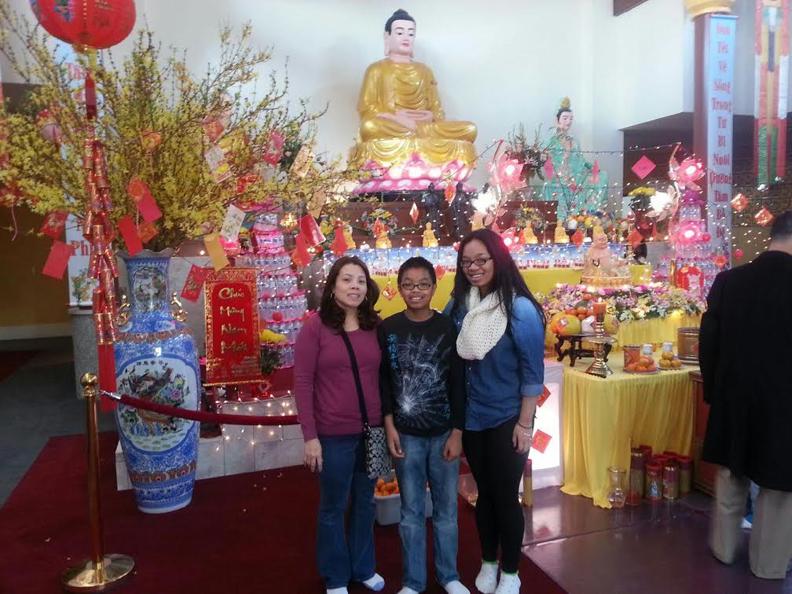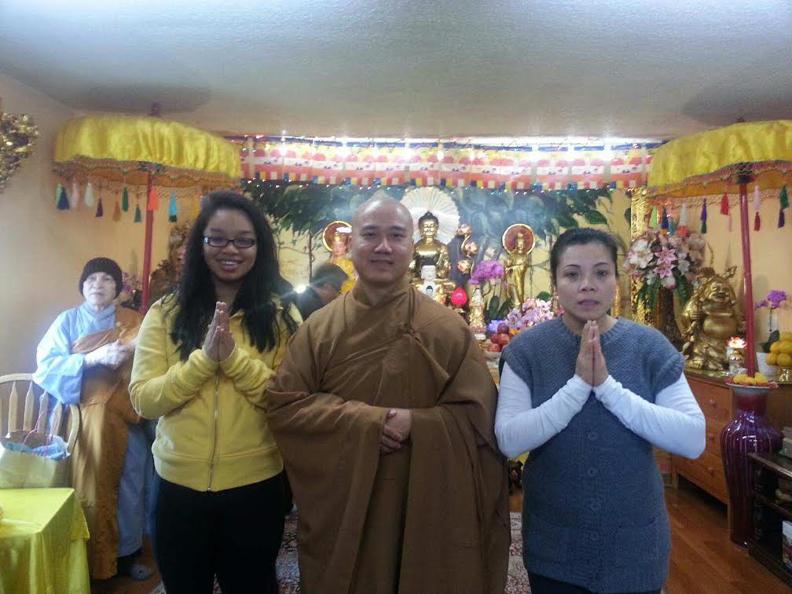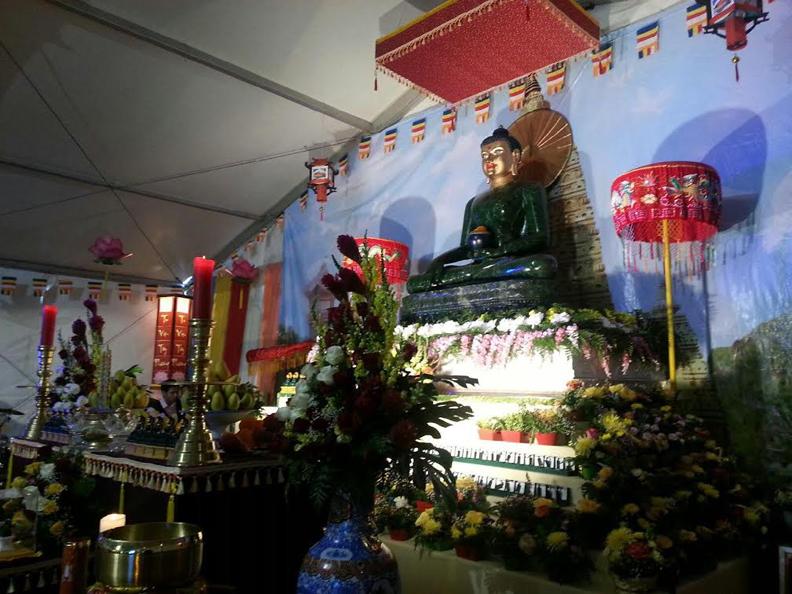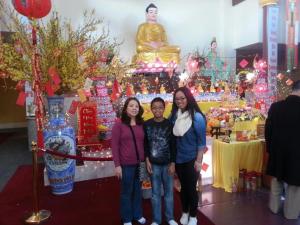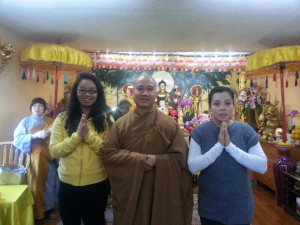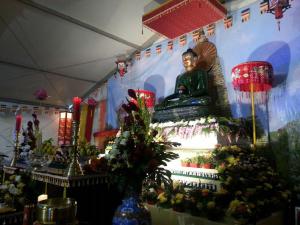Inside look at Buddhism at HHS
Oct 14, 2014
Five minutes before she goes to sleep, Amy Bach, junior, meditates.
“You let your mind focus on one thing, which is Buddha,” Bach said.
Bach, like her mother, is Buddhist.
Every Sunday, Bach wakes up at 6 a.m. to volunteer for three hours in the kitchen of her Vietnamese temple, Chùa Phật Ân, in Roseville, Minn., before spending an hour chanting, meditating, and listening to a monk’s lecture.
“The temple is very open, and it feels like a second home to me. I can go there often. Everyone respects you,” Bach said. “Before, [the temple] was actually just a small house, but the neighborhood around it respected the culture, and they bought a new house, so the temple is just building and expanding.”
According to the Pew Research Center, as of 2012, there are about 3.9 million Buddhists in North America. This makes up about one percent of the North American population, with 99 percent of all Buddhists living in Asia.
Bach has been Buddhist her entire life, as her mother was brought up Buddhist in Vietnam. Her Vietnamese father, on the other hand, was not.
“My grandma is really religious, and she’s very traditional. She kind of pushed my mom to make me a Buddhist child in the family,” Bach said. “Personally, it’s really fun. Even though I’m Buddhist, I can still celebrate Christmas because my dad is Catholic.”
She visited her parents’ birth country once during third grade when her grandfather was diagnosed with stomach cancer. She was able to spend a great deal of time learning about her background.
“[My father’s home town] was more of a southern area, and my mom’s [home town] was a city, so I got to discover a lot about my culture, how things happened, and the differences between the areas [people] live in,” Bach said.
Chris Dinh, senior, another Vietnamese Buddhist, also volunteers and meditates at Chùa Phật Ân every Sunday.
“[Religion] influences a lot of my morals,” Dinh said. “[But] Asian Buddhism is very different from what western people think is Buddhism.”
Dinh believes that, despite the overall accepting nature of HHS, some students unfairly judge other Buddhist students.
“A lot of people are quick to judge. It helps you fit in if you act American. You don’t talk about other religions,” Dinh said. “Occasionally, you’ll find a person saying that your religion is not a religion. It’s a way of thinking or it’s a philosophy or you’re worshipping an idol. That’s different with Buddhism. We respect everyone else’s religion.”
After being confirmed, Bach was assigned a personal monk named Thay Phap Hoa. She is in contact with him often and has gone to him with many of her personal troubles.
“We’re really close. I can tell him anything if I want to. He helped me when my grandpa passed away. I went to the temple, and I just talked to him about it, and he gave me really good advice,” Bach said.
Religion is very central to the lives of both Bach and Dinh, and they practice many different traditions, often on holidays.
“On [holidays], we’re very superstitious. On certain days, you can’t wear dirty clothes, and you can’t sweep the house,” Dinh said.
Additionally, they must follow a certain set of beliefs that color their actions and the way they live their lives.
“[In my temple], you have to make five promises. No killing, no lying, no stealing or being addicted to drugs, and no [sexual misconduct],” Bach said. “I have to watch what I say.”
Bach plans to remain devout in the future and is glad for the acceptance that has already been shown to her.
“Hopkins is really accepting. We are very diverse, and I find that very awesome.”

